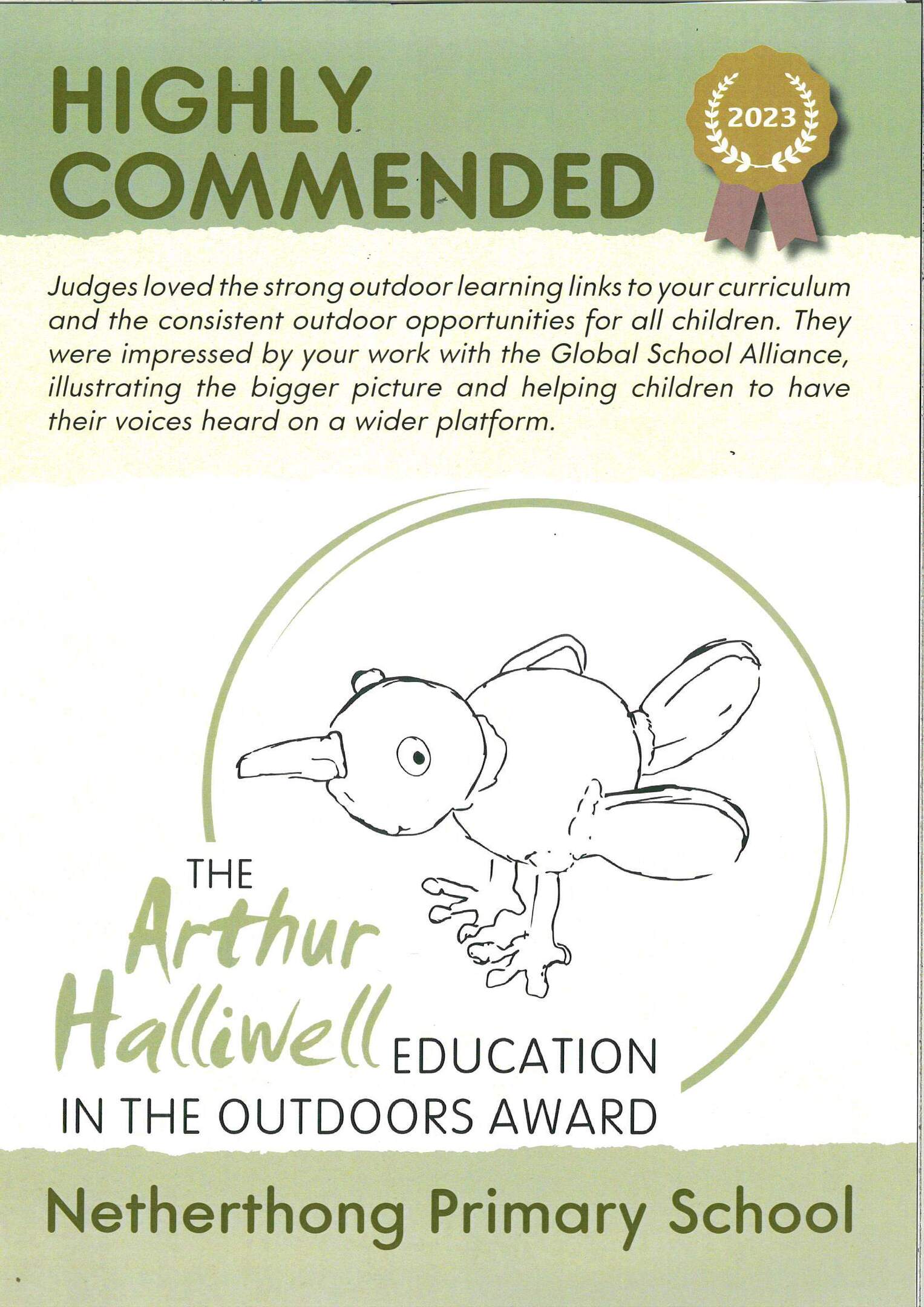Forest School 
Coordinator: Mrs J Pearce Forest School at Netherthong provides regular sessions of outdoor learning in our wonderful, wild, woodland areas. Woodland learning is led by the children, who have opportunities to develop imaginative play, experimentation, risk taking, construction skills and creativity.
Learners are able to focus on their own areas of interest and share and test ideas and plans, working independently or as part of a small group. Repetition is encouraged so the children are able to evaluate, adapt and develop games, projects and activities.
Forest school encourages a sense of familiarity and connection within the natural space as we experience the cycle of the seasons, growth and change and learn how to respect and care for woodland plants, trees and wildlife.
As Forest School is a child led experience, it does not follow the structured progression of other curriculum areas. Each session does have a familiar routine which includes time for group and individual exploration, focused activities and review and reflection. The progress of a session or a series of sessions however, can depend on chance events and encounters and the personalities and interests of the children involved.
The types of experiences made available for the children, the broad expectations of how they may engage and behave during sessions and the amount of responsibility given to the learners alters and develops as they progress through school.
Children have regular, weekly sessions spending time in our wild spaces, experiencing seasonal changes and learning about the trees, plants and wildlife in the woodland. Learners have the opportunity to become involved in creative projects using natural materials, often related to familiar books and songs. As well as being able to develop imaginative play in the woodland environment, learners take part in games and activities which enable them to increase social interaction, confidence and self esteem. Forest school sessions include activities such as:
- Planning and building shelters and dens.
- Researching the seasonal needs of wildlife and creating habitats and feeding stations
- Identifying, planting and trees and wildflowers
- Exploring life cycles and ecosystems
- Woodcraft
- Tracking and climbing
- Seasonal Scavenger Hunts
- Songs and story telling
The impact of a forest school experience is unique to each child as they determine their own learning journey. Benefits of taking part in forest school often include:
- An increase in self esteem and confidence.
- Independent thinking and the ability to explore, evaluate and improve individual ideas and projects.
- Cooperation and consideration of others in the team.
- An understanding of and affinity with the natural environment.
- Developing and expanding speech, language and vocabulary.
- Extending risk taking.













